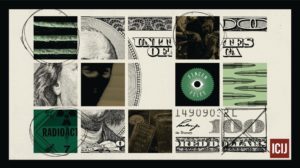How I nearly missed out on being part of FinCEN Files
 When Will Fitzgibbon of the International Consortium of Investigative Journalists (ICIJ) told me about the FinCEN Files project sometime in July 2019 and asked if I was in, as usual I felt the adrenaline rush – beaming with excitement, I said, “yes, I am in.”
When Will Fitzgibbon of the International Consortium of Investigative Journalists (ICIJ) told me about the FinCEN Files project sometime in July 2019 and asked if I was in, as usual I felt the adrenaline rush – beaming with excitement, I said, “yes, I am in.”
The experience from working on West Africa Leaks with him and journalists from 11 West African countries in 2018, a project that dug into Panama Papers, Paradise Papers and other leaks to reveal how politicians, their assigns and other business people were using tax havens to hide their monies, went deeper into turning a collaboration into a relationship – all of us on the project got closer and felt like family. We grew in confidence, trust of each other and became closely knit. The feeling of working on a much bigger scale like FinCEN Files I expected was going to be much more enthralling, and I definitely wanted to be part of it.
Then we met in September 2019 in Hamburg, Germany where some of the 400 plus journalists who were going to work on the project were introduced to each other and to the files, and specific details were discussed. I remember we couldn’t take photos or selfies because of the high level of secrecy and security we were observing. But that meeting in Hamburg, set the tone for FinCEN Files.
I returned to Ghana, ready to work. But then the realities began to hit. FinCEN Files was difficult to comprehend. The information was too technical. But myself and my colleagues, especially in Africa were determined to keep going as we learned along the line.
Then the final months of 2019 ended, with news of the coronavirus disease (COVID-19) sweeping across the world. But for me, that wasn’t the only challenge. I needed to move house during the pandemic. While looking for a house in Accra became daunting as it is – there was the added burden of finding out the cost after every trip. I moved from one place to the other looking for a house, but couldn’t find suitable housing, and what’s worse, I came to the realization that housing in Accra at a good and convenient location was expensive. Where was one to find money for a house during a pandemic?
Then there was another devastating news that hit me and my colleagues, our friend Ignace Sossou, the Beninoise journalist we worked with on West Africa Leaks was arrested, hurriedly put before court, jailed and fined on Christmas Eve, for accurately reporting on Facebook a speech by a public prosecutor in Benin. I think that even hit me harder. I was angered and frustrated, knowing that I could do something about the situation and yet I was helpless. The virus, house hunting and the unjust incarceration of Ignace conspired to inflict me with depression. For the first time in my life I realized I was suffering from depression. Apparently, my regular gym attendance and workouts helped to control my stress levels, but with the pandemic, public gatherings were banned and gyms were closed. I couldn’t workout, I was confined and at home, can’t effectively search for a house and pressure was mounting on me to move. The conditions, affected my interest in work, especially all the major projects I was working on including FinCEN Files.
I stopped looking at the Files, I tried to do the routine things that kept me going, but nothing more. It even became harder for me because human contacts were curtailed.
But then occasional messages from colleagues on the project, especially Will, would stir my interest and I would return to the Files.
Then like three or four months ago, after a phone call with Will, I got the much needed boost to get my groove back on to get done with the story; and here we are, I finally made it – part of the largest ever journalism collaboration in history.
With more than 400 journalists, from 88 countries FinCEN Files becomes the largest ever journalism collaboration in the history of journalism.
As journalists, we have done our part, we wait to see, if anything would change.
By Emmanuel K. Dogbevi
